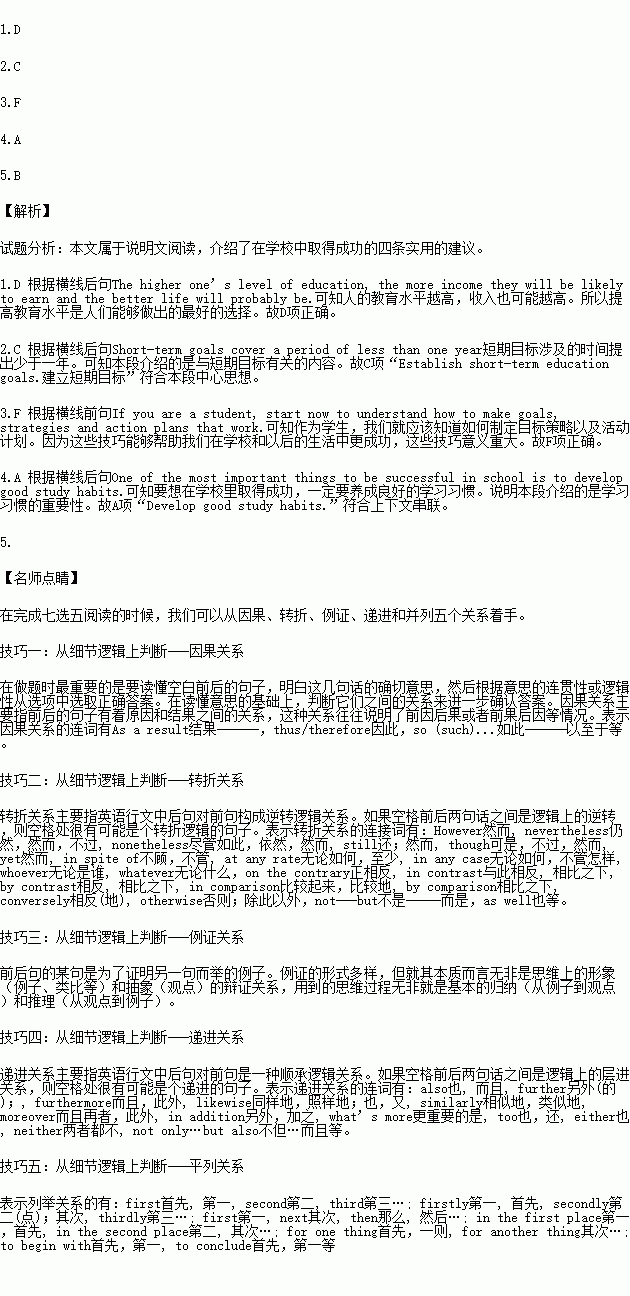题目内容
根据短文内容,从短文后的选项中选出能填入空白处的最佳选项,并在答题纸上将该选项标号涂黑。选项中有两项为多余选项。
How to Be Successful in School
Learn the income payoff. Examine the relationship between education levels and income earned during one’s working life. 1. The higher one’s level of education, the more income they will be likely to earn and the better life will probably be.
2. Short-term goals cover a period of less than one year. Do you want to get into a good college? Do you want to graduate in the top 10 percent of your class? It’s important to have short-term goals that are stepping stones to your long-term goals.
Develop a strategy(策略) and plan. A strategy might be to study with a group of friends on a regular time. An action plan will include several individual tasks with timing and any cost that might be required. If you are a student, start now to understand how to make goals, strategies and action plans that work. 3.
4. One of the most important things to be successful in school is to develop good study habits. Good study habits are formed by studying on a regular basis for the amount of time required to learn something. Once good study habits are well formed you will find that learning and success in school become easier.
Seek out other winners. 5. They don’t have to be the smartest, but they should be on their way to being the best they can be. Make friends with such people so that you can support each other to be successful in school.
A. Develop good study habits.
B. Winners are those who make the best of their potential through great effort.
C. Establish short-term education goals.
D. Education is the best choice a person can make.
E. Work hard to develop strong character.
F. Then this skill can help you to be successful in school and later in life.
G. Keep in mind your long-term goals.

